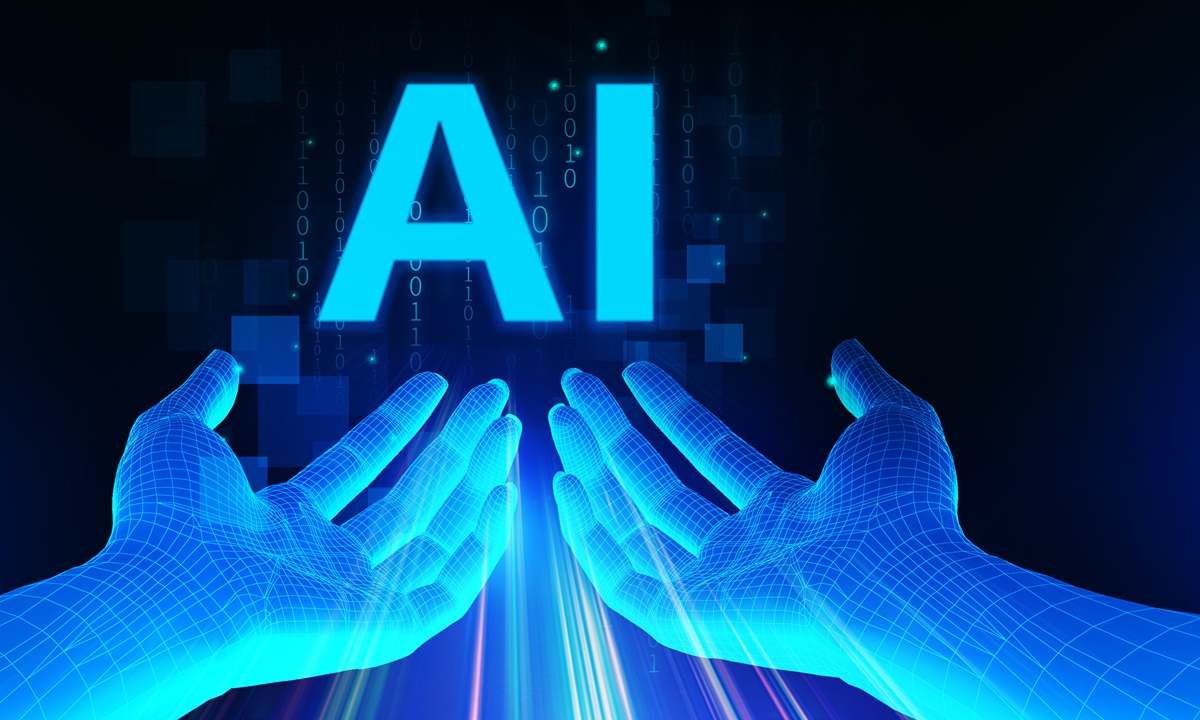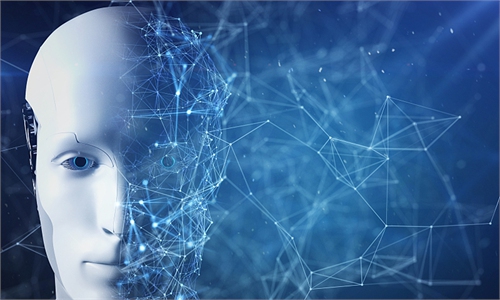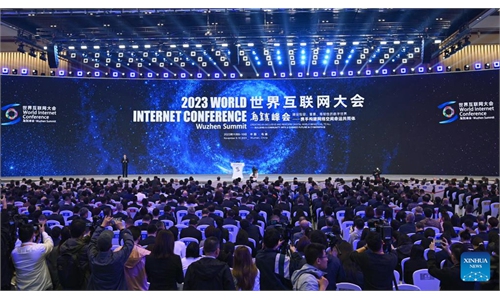China, EU are suggested to strengthen cooperation on AI governance, legislation
Tech development transparency is emphasized: expert

AI Photo: VCG
Chinese experts have highlighted significant potential for China and the EU to enhance cooperation in the governance of artificial intelligence (AI). Europe on Friday reached a provisional deal on landmark EU rules governing the use of AI.
With the political agreement, the EU moves toward becoming the first major world power to legislate on AI, Reuters reported.
The accord requires foundation models such as ChatGPT and general purpose AI systems to comply with transparency obligations before they are put on the market. These include drawing up technical documentation, complying with EU copyright laws and disseminating detailed summaries about the content used for training.
High-impact foundation models with systemic risk will have to conduct model evaluations, assess and mitigate systemic risks, conduct adversarial testing, report to the European Commission on serious incidents, ensure cyber-security and report on energy efficiency.
The new AI rules come as governments around the world are seeking to balance the advantages and risks of the technology. Countries including China have revealed their own measures to regulate AI.
China has been at the forefront of coordinating AI development while implementing regulations to ensure the responsible and ethical use of the technology.
In July, Chinese regulators unveiled temporary management measures for AI-generated content, which took effect in August, making the country one of the first in the world to introduce regulations on the fast-developing industry.
While the EU places emphasis on imposing strict regulation, China's governance of AI is more encouraging of research and development, seeking a balance between regulation and innovation, Qin An, director of the Internet Policy and Law Research Center under the Law School in Tianjin University, told the Global Times on Sunday.
China also introduced the Global AI Governance Initiative in October, which offered China's solution for global AI governance and China's approach of openness and inclusiveness in global cooperation and development.
China's approach for AI governance provides a blueprint for other countries and demonstrates China's strong sense of responsibility in AI governance and commitment to promoting global cooperation in AI safety, Wang Peng, an associate research fellow from the Beijing Academy of Social Sciences told the Global Times on Sunday.
The international community has strengthened cooperation on AI governance. China, the US, the UK and the EU in November signed a declaration at the AI safety summit, hosted by the UK, laying the ground for AI global governance.
As leading players in AI, China and Europe have ample opportunities for cooperation in AI regulation, experts said.
By sharing experiences, setting standards and engaging in data sharing, both sides can contribute to the responsible and sustainable development of AI on a global scale, Wang said.
For example, both sides can establish AI technology and application standards to promote international standardization and ensure safe and sustainable development of AI technology. Under the premise of legality and compliance, they can also share data resources related to AI technology, facilitating better flows and sharing of resources to support AI research, industrialization and deployment, Wang added.
Some EU countries are beginning to recognize that China, unlike the US, which imposes restrictions and blockades to preserve its hegemony, can be a cooperative partner. The market size of China is also attractive that Europe cannot afford to ignore, Qin said.
Chinese institutions applied for 29,853 AI-related patents in 2022, climbing from 29,000 the previous year, according to data from the World Intellectual Property Organization, Bloomberg reported. That's almost 80 percent more than US filings. Overall, China accounted for more than 40 percent of global AI applications over the past year.
China and the EU also strengthened talks on AI cooperation, which were a highlight at the second China-EU high-level dialogue in the digital area in September.
Senior Chinese and European officials had in-depth discussions on issues including development and policy in the digital area, AI, standards of communications technology, and cross-border data flow, the Xinhua News Agency reported.
China and the EU agreed to work together and strengthen exchanges to push for new results in practical cooperation in the digital area, foster an open, inclusive, fair, just and non-discriminatory environment for the development of digital innovations.


